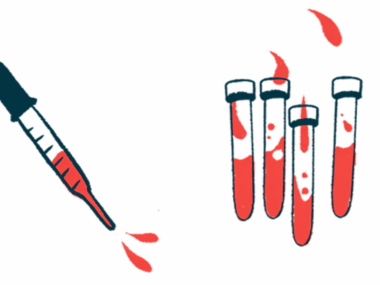Eloctate as prophylaxis eases pain due to hem A, improves life quality
Analysis of data in Phase 3 therapy trials covering nearly 200 adults, children
Written by |

Long-term prophylaxis or preventive treatment with Eloctate (efmoroctocog alfa) helps to ease pain and improve health-related life quality for adults and children with hemophilia A, according to an analysis of three Phase 3 clinical trials.
“These analyses highlight the relevance of pain, physical health, and overall wellbeing as the concepts most sensitive to change with prophylaxis treatment, indicating the potential for improving long-term [health-related quality of life] in patients with hemophilia A,” the scientists wrote.
Findings are detailed in the study, “Long-term efmoroctocog alfa prophylaxis improves perceived pain, mental, and physical health in patients with hemophilia A: post hoc analysis of phase III trials using patient-reported outcomes,” published in the journal Therapeutic Advances in Hematology.
Eloctate is a widely approved extended half-life therapy for hemophilia A
Frequent bleeding, including into the joints, is among the leading symptoms of hemophilia A. As joints swell and stiffen, they become painful and limit movement, impairing patients’ health-related quality of life (HRQoL). When treating hemophilia A, it’s important to focus not just on keeping bleeds under control, but also on enabling patients to reach a better overall life quality, the scientists stressed.
Eloctate is an extended half-life therapy from Sanofi that’s approved to prevent and treat bleeding episodes in adults and children with hemophilia A. It works to replace factor VIII, the clotting protein that’s missing in people with hemophilia A, thereby helping the blood to clot and preventing excessive bleeding.
Scientists looked at data from three completed Phase 3 clinical trials of Eloctate to understand how well the therapy leads to improvements in HRQoL. These post hoc analyses were funded by Sobi, which markets the therapy as Elocta in the European Union and several other countries. Three of the study’s eight authors also are Sobi employees.
Data covered 118 adults or adolescents (mean age of 32.8) and 71 children younger than age 12 (mean age of 5.9), who took part in the open-label Kids A-LONG (NCT01458106) or A-LONG (NCT01181128) trials, and were part of ASPIRE (NCT01454739), a long-term extension study. All had a diagnosis of severe hemophilia A.
A main goal was to watch for changes reported in usual activities and in pain or discomfort, reflecting HRQoL, measured using the EuroQoL (EQ)-5D. In adults, researchers also watched for changes in the Haemophilia Quality of Life Questionnaire (Haem-A-QoL) across up to about six years of Eloctate’s prophylatic use.
Gains seen with long-term use in reported pain levels, life activities
The proportion of adults and adolescents expressing no pain or discomfort on the EQ-5D increased from 35% at the start of the A-LONG trial to 45.4% at week 28 of treatment, and stayed high at 44.7% through to month 30 in ASPIRE, indicating a lasting reduction in pain. Similar observations were seen across patients’ usual activities.
Mean Haem-A-QoL scores for how adults felt about their disease fell by 3.24 points from A-LONG’s start to treatment end (any A-LONG or ASPIRE timepoint before a patient completed and left the study), indicating an improvement. In measures of physical health, mean Haem-A-QoL scores decreased by 3.85 points.
The proportion of patients feeling limited in their ability to travel declined by half, dropping from 41.7% at the start of A-LONG to 21.7% after up to six months of prophylaxis in the extension study. The proportion with joint pain decreased from 72.6% to 56.6% from the start of A-LONG to the start of ASPIRE.
Likewise, the proportion of children without pain or discomfort on the EQ-5D rose from 75% at the start of the Kids A-LONG trial to 95.6% at the extension study’s start.
Both children and their caregivers reported a significant decrease in the perception that Eloctate injections were bothersome by Kids A-LONG’s conclusion. Children also expressed feeling less upset about limitations in physical activities over the course of ASPIRE, especially those previously using a prophylaxis.
“It is noteworthy that, while change in some [patient-reported outcomes] was small, improvements were often sustained,” the scientists wrote, noting that these observations add to previous findings that Eloctate reduces the number of bleeding episodes and its use is safe and well tolerated.



